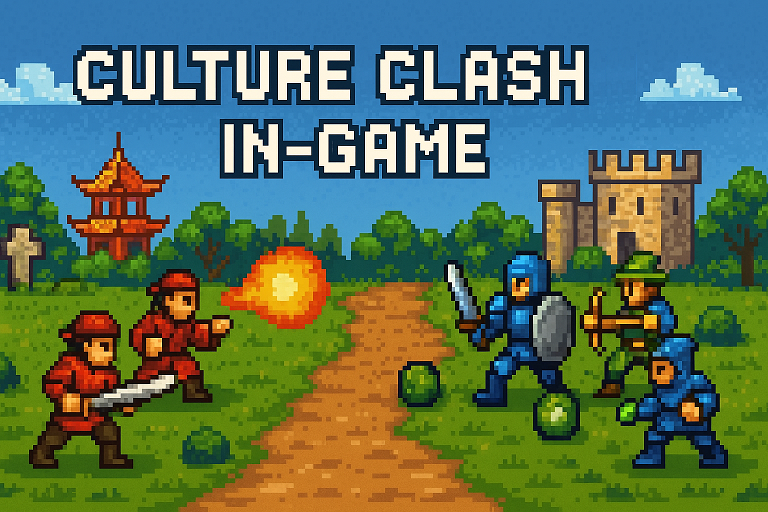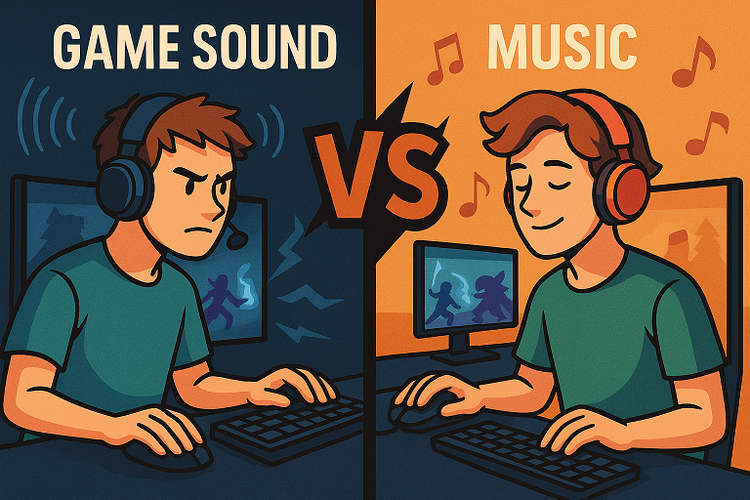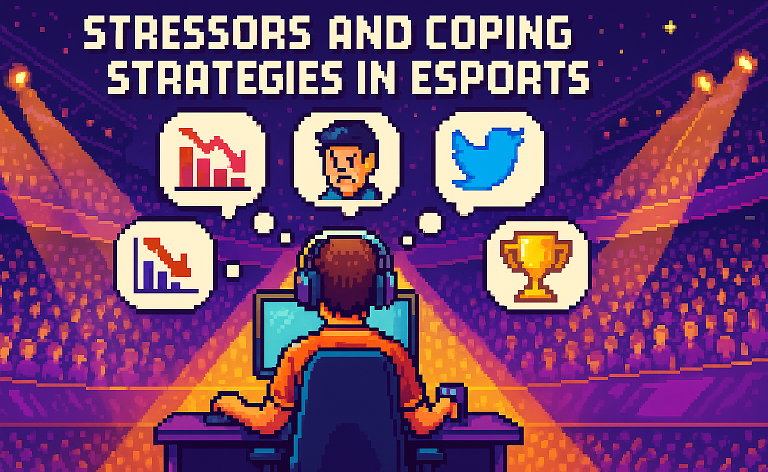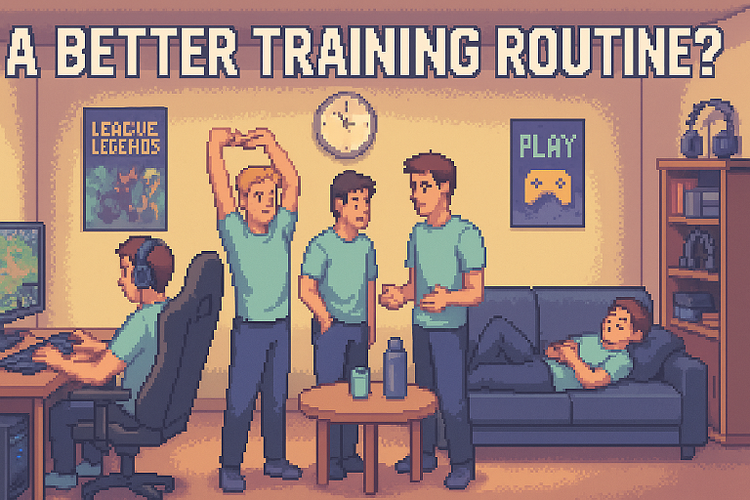Guest Episode | Paulo 'CatZ' Vizcarra: Playing to your Strengths and Choosing your Fight
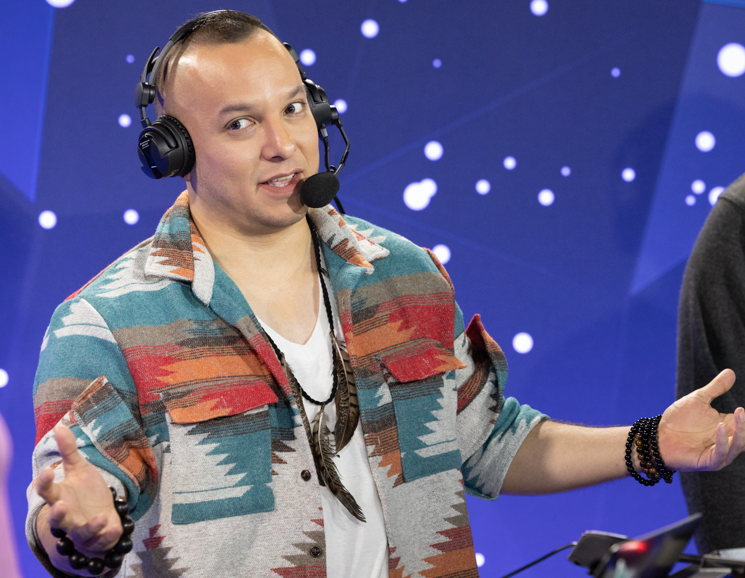
Hello everyone, and welcome to a brand new episode of Gaming Science.
Today episode is written by an OG of the RTS scene. To you StarCraft fans out there, he is far from being a stranger, and I'm super exited and thankful to have him contribute to this newsletter. As a caster, team captain, streamer, former SC2 progamer, and now ZeroSpace game developer he widens the science-centered approach of 'Gaming Science'.
I started playing StarCraft early in SC1, and became a SC2 pro player and streamer shortly after the game came out. I created my team ROOT Gaming with drewbie, with the shared goal to become the best North American team, and for a few years I think we accomplished that goal.
As a player, I didn’t have many outstanding results, but I always took great pride in playing the game in ‘my own way’ and finding creative avenues to explore instead of simply just grinding and following the meta.
I like to think that I was successful enough in this explorative process to be competitive against ‘the hive mind’ that produces a well-polished meta. Furthermore, I garnered enough attention and respect that some of the best Zerg players in the world at the time approached me to help them prepare for important matches and recognized many of my ideas as an avenue to help them succeed.
It was through this collaboration; in helping some of the greats integrate some of my ideas into their play, that I got the most fulfillment out of my standing as a competitive player.
Most of my focus and stable income came from streaming and content producing for many years, I was also a tournament organizer, and eventually transitioned into a position as a commentator for various circuits over time, most recently the EPT.
Beyond that, I always took active part as a voice in the space, organized and actively participated in many shows, actively giving my opinions on the state of the game and offering solutions to problems as I saw fit, of course much of that would end up feeling like shouting into the void, until it didn’t.
Shortly after Legacy of the Void came out, I was hired by Blizzard as an on-site consultant.
I felt privileged to be able to contribute more directly and get to voice my opinions internally in various areas (still with a primary focus in game design and balance).
Blizzard continued to renew and extend my contract for 4 years, just about until the SC2 team more or less dissolved, at that point I decided to move away from Irvine (felt pointless to stay there).
I continued to play, commentate and had always voiced my opinions in shows like ‘meta’ with Artosis and Incontrol, which eventually gathered the attention of the creator of ZeroSpace (Marv). I was once again brought in as a consultant; this time early enough into a promising project, where I could apply my learnings and help to shape the developing product with a little more freedom.
Marv had no idea I had been a consultant for Blizzard up until recently, which felt extra validating to me - I had now been hired twice for effectively the same position (which I obviously loved) without ever really applying for a job, and seemingly as a direct result of putting out my thoughts on RTS/SC2 design and general thoughts and solutions out there.
Fast forward 3 years, today I am by title the “Chief Creative Officer” at ZS, and in charge of leading the Multiplayer game/product. Much like in my time as a SC2 player/personality and my time as a collaborator at Blizzard, I get to wear many hats and jump around many different areas, which is something I truly enjoy.
I have found that that’s just the type of person that I am: I like high level overviews, I like to make connections and I am significantly stronger at creative processes than I am at practical ones. Regardless of if I am designing a sc2 strategy or an aspect of a game, I like for things to make sense while striving for a unique product.
I like to break new ground, that is not to say break every existing wall and boundary, but instead find sensible opportunities for improvement, exploring potential and viable solutions whenever they make the most sense.
A new game is of course the perfect playground for this set of skills and the type of person I think myself to be. I am lucky to be surrounded by the most creative and capable team I’ve worked with, as well as people who truly excel with the more analytical, detail-oriented perspectives (like Scarlett who leads Balance for the project) to help polish broader concepts and help to somewhat ground some of our wildest thoughts.
I am happy to part-take in a challenging, shifting environment, and have my position be somewhat ‘chaotic’ in nature, it keeps me on my toes and motivated to learn about many different aspects to then see where and how to best integrate them to work together to produce a hopefully beautiful, unique, cohesive design.
I’ve never felt more motivated and happy than in my current position and I believe this fulfillment is a function of the process of improving, exploring and ultimately getting to do what I like to do.
For me, it’s not really about “designing a game” in a genre I love and devoted most of my life to. As fulfilling as that is in itself, there are many positions at the company that wouldn’t be fulfilling to me. Instead, it’s about learning to use our strengths and develop skills pertaining to what we enjoy doing more broadly as human beings. These likely translate and are applicable to just about any categorical environment. With this in mind, here’s my general thoughts / advice, take them with a grain of salt, as there’s a chance that what works for me won’t work for you.
🤔 Choosing your Fight:
In the ways you find most enticing, learn to watch yourself, learn about your strengths and weaknesses and identify your best fuels. I think that when we enjoy an activity in pursuit of greater understanding or some semblance of mastery, that can represent a strong clue that we are on a quicker path towards improvement.
The solution to your many weaknesses needn’t be “git good at everything”.
We live in a collaborative space, with many people out there who truly enjoy the things you hate doing and will have a better baseline from which to do a better job of it as a result given the same amount of effort / energy invested.
The thesis here is straight forward; if real interest is manifest, we’ll be much more efficient at in-taking and processing information - this isn’t an inherently cognitive presupposition, information and energy are perhaps better thought of as all-permeating.
If we’re uninterested, then it follows that the path towards improvement will be more difficult, as we have to first fight ourselves and our natural proclivities will represent an obstacle where they could instead be an ally.
Whenever I’ve brought forth this proposition, there are always a few people that will be quick to note that they don’t have the luxury of pursuing their interests and dreams, that they need the job they hate and that mine appears to be a privileged vantage point.
The truth is that if you’re into something, anything, there’s room for growth and there’s probably a market for it, if $ is your utmost concern. Why deprive the world of your best self? If you are unsatisfied with your work, you could take a conservative approach to change things slowly, consider investing some of your free time into developing the skill sets to ease a transition into an area that better suits your potential. If your thought when reading this is “nah can’t be done” then I can only quote my boy Henry Ford and hope that he can be more persuasive:
“Whether you think you can, or you think you can't--you're right.”
🥊 Fighting your Fight:
Choosing a path is only the first step however, as the process shouldn’t be void of challenge, the idea here is to aim at maximizing one’s potential, rather than to make life “easier”. I pose enjoyment as a clue not to be mixed with as complacency. If it takes less effort for you to be good at something than someone else because you’re naturally inclined - by your interests, past experience or physiology, that doesn’t mean to sit back and relax, it just means that you are, perhaps, in the right place. It’s easier for me to eat a bag of cheez-its than to hit the gym, and yet as of the last couple of years I’ve adopted the gym as a regular, desirable struggle.
I think that through my experiences alone, I am well suited for and good at my job, but being in the right place wouldn't be satisfying if I can’t continue to improve and be the best that I can be.
The same could be applied to other people, if you surround yourself with like-minded individuals only, you might get a sense of comfort, but comfort breeds complacency - which in turn, at least in my experience, does breed contempt, boredom and depressive states. When you feel like shit, take it as an opportunity; to get up and rebuild stronger, and to reach new heights vs the alternative temptation to simply give up.
If you picked your fight, fight it - it’s worth it.
⚙️ Adopt “Humility” in the Process
I really hate the way this word is commonly used, for many people humility seems to mean “a person of high standing on a given field pretending to be worse than they are to make others feel better”. Even google (most wide-spread definition) matches this sentiment by partially defining humility as a modest or low view of one’s own importance.
From my perspective, people are good at different things and can contribute different things; wholesale value judgments of people are short-sighted, and thus a low view of one’s importance is unhealthy at best. On this note, a classic song that pops to mind and accentuates what I consider to be a crappy use of the word “I’m so humble” by the Lonely Island. With this said, you can be better than others given set parameters, this is where recognizing our strengths and weaknesses can be a great weapon.
You can see any given area or skill set as a mini-game within the grand game of life.
Serral is better than you at StarCraft, and it would be dishonest for him to pretend that he’s not, plus it would deprive others of the insights he might otherwise be able to share. However, I’ve had the “privilege” of sharing a soccer game with Serral playing ‘forward’ on my team and while I appreciated the hustle... I mean you get the point I don’t have to describe what happened.
So the definition of humility I’d like to invoke instead is one of open mindedness, self-evaluating and acting on our strengths confidently, while recognizing that others might have insights from which we can continue to grow. As for our weaknesses, evaluate where it’s worth investing into bettering yourself vs seeking help, or doing both. Not only is there no shame in not being good at everything, but in a collaborative environment you’re liable to mess things up for everyone else if your self-evaluation is off. You’re likely to not be able to contribute or take initiative if your default position stems from an inaccurately low perception of your abilities.
I’d recommend trying to evaluate your surroundings and act accordingly. To take that same game as an example, if the goal was to win, which we did not, Serral would have benefited from passing the ball to Apollo or Lambo rather than Neeb …cause… yeah…
You probably suck at some stuff, be humble there.
You’re probably good at some stuff, be confident instead. Without forgetting context; each environment is relative. You may not be the best X in the world for any given task, but you might just be the best person available. You might be a GM Terran player, but if Maru’s around, it’s likely your turn to ask questions and grow before you decide to disagree or impart knowledge.
Anyway that’s it for now, I have much to learn for myself, but if this helps to inspire or motivate any one person to consider taking a leap towards doing what they love or using any portion of this to augment their current approach, then that’s a W, thank you for reading!
And as always, see you guys next week. Best wishes,
Christian 🙂
Join over 250+ (🤯) Gaming Science subscribers and become smarter every week.
"I love this type of content, thank you Chris."

